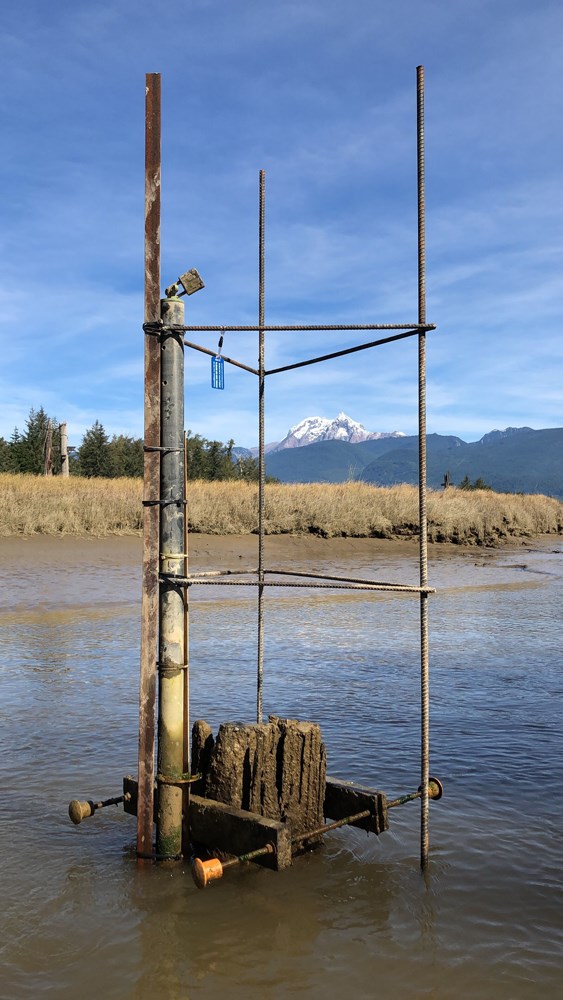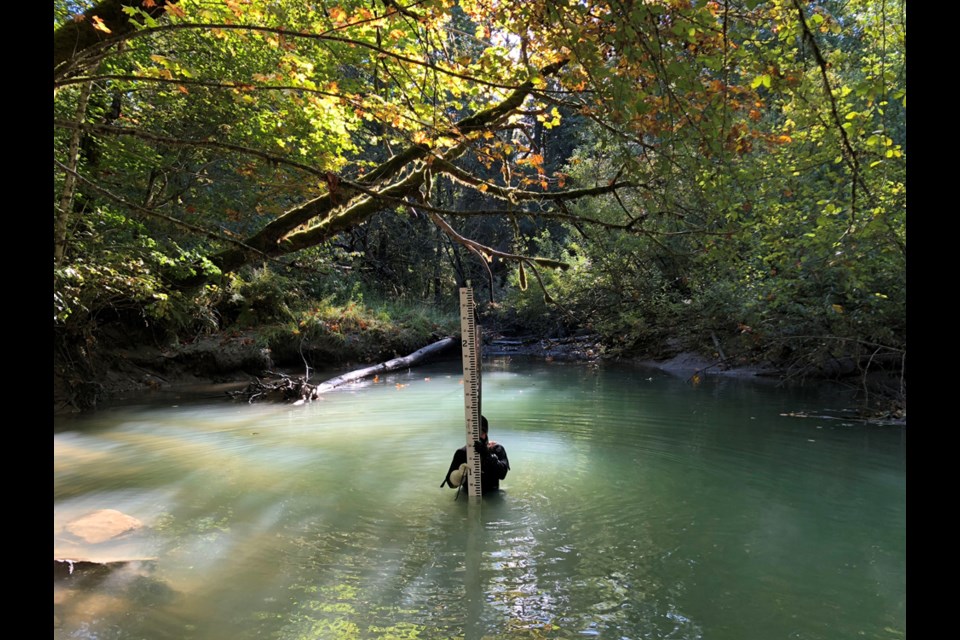The science will help researchers know how the fish are doing.
The ߣ������River Watershed Society is currently monitoring how the ߣ������River training berm, better known as Spit Road, continues to impact juvenile chinook salmon access and habitat function in the ߣ������River Estuary.
The work is part of the Central Estuary Restoration Project that the society is spearheading in partnership with Fisheries and Oceans Canada and the ߣ������Nation.

Scientific equipment has been installed at various locations throughout the estuary, which is collecting data to inform future habitat restoration measures.
Phase 1 of the restoration was the recent replacement of a culvert in the berm to improve access for salmonids from the ߣ������River into the Central Estuary.
The berm, a holdover from the 1970s, when a coal port was proposed and then abandoned, has been an obstacle for juvenile salmon.
“The ߣ������River training berm is an industrial relic from the 1970s that continues to limit both fish access, and habitat function in the ߣ������River Estuary, despite ongoing restoration over the last 20 plus years,” the society's executive director Edith Tobe said in a news release.
The current study continues work that began in 2013 when the ߣ������River Watershed Society embarked on a three-year study to assess if juvenile chinook were accessing the estuary through the culverts as intended.
"Between 2013 & 2016, 200 fish nets and traps were set, and despite extensive effort, only 239 juvenile chinook were found in the estuary. For comparison, an average of 135,000 juvenile chinook annually emerged from the Cheakamus River during the three-year estuary study," the release states.
For more information on the project go to .




